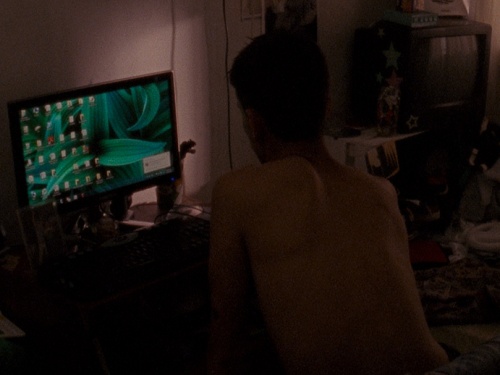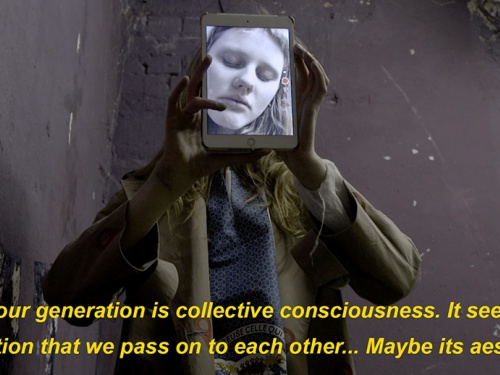Safar: Capturing the Changing Face of Middle Eastern Experience
Safar: A Journey Through Popular Arab Cinema
21 - 27 September 2012
These nine Middle Eastern feature films, from 1960 to 2010, have come to represent pivotal transitional periods in the region's social and political developments. Undoubtedly the biggest change over the past fifty years has been the status of women, a feature very much in evidence on the silver screen.
In Watch Out for Zouzou (1971), the 'Arab Marilyn Monroe' Soad Hosni plays a perky college student who simply wants one thing in life – to joyfully belly-dance in her mother’s troupe. In more recent Egyptian films such as One-Zero (2009), named after a big match in the 2008 Africa World Cup and directed, written and edited by women, a pop diva has to justify singing and dancing to support a desperate family. Even the secretary in The Yacoubian Building (2006) endures sexual harassment in order to survive.
Six of the movies in the Safar season are Egyptian. This is no surprise since Cairo has long been and still is the effective capital of cinema for the Arab world. As a result, the Egyptian dialect is the one pan-Arab audiences readily understand. Since that country’s January 25th Revolution, Cairo’s cinema industry has come increasingly under threat. A noted director was recently prevented from filming in a mosque in a new ruling that maintained it was against Shari’a law. Conversely, Adel Imam, a known Mubarak supporter and a comedic force in hundreds of films, had his conviction and three-month prison sentence for blasphemy, in roles from movies like Terrorism and the Kebab (1993), overturned in July. Another Mubarak supporter and One-Zero star Elham Shahin came under fire in September when Islamic TV preacher Abdullah Badr criticised the love scenes in her films from the 1980s. In any other country, their quarrel would be fodder for the gossip magazines. However in Egypt there is the real risk of a conviction, which prompted the actors’ syndicate to offer Shahin legal support.
The scope of popular movies has also changed over the years. Alexandria, Why? (1978) signalled the end of the sprawling epic, where World War II and 1948 Palestine subsumed characters’ lives. Interestingly, the film includes an understated gay love affair – a wealthy, colonialist-hating Egyptian falls for a working-class British squaddie – as well as a romance forged in the heat of communist activism between a Muslim man and a Jewish woman. Binding everything together is the coming of age of a student obsessed with Hollywood musicals and Shakespeare in Alexandria’s first secular school, Victoria College, which in real life produced the film’s director Youssef Chahine, Michel Shalhoub (Omar Sharif), Edward Said and even King Hussein.
By the 1980s and 1990s, with the rise of satellite channels and DVDs, TV had become more popular than the movie-houses. The trajectory of stories moved away from grand pageantry to the more intimate. In the 2000s, modern directors also used the vehicle of multiple storylines this time to focus on individual crisis and emotion. In many ways these films started resembling popular soap operas. In Egypt, a movie is only considered truly successful if it spawns a dramatic television series in its name. Interestingly, the more popular a film is, there is more of a reason to censor it and make it acceptable to a wider, oftentimes more traditional audience.
Away from Egypt’s Bollywood popular culture there is also a thriving art-house tradition that is cherished in the West. Wadjda, the first film by the Saudi female director Haifaa Al-Mansour made a splash at the Venice Film Festival, yet it will never be shown in Saudi Arabia because it tells the story of a feisty ten-year-old-girl who wants to ride a bike. Regional audiences remain addicted to Hollywood blockbusters, but they can tell the difference between Orientalist fantasies about oil and sheikhs produced with Emirati funding, and locally-made endeavours. Captain Abu Raed (2007), the first motion picture made in Jordan for fifty years was supported by the Jordanian Royal Film Commission and went on to win awards at Sundance and the Dubai Film Festival.
Western art-house audiences and international film festivals have always given sustenance to Arab filmmakers when their films were banned in their home countries. The legendary Egyptian director Youssef Chahine (1926– 2008) acknowledged this vital relationship when he admitted if the Arab world likes his films – “ahlan wa sahlan [“welcome”]. If the foreign audience likes them, they are doubly welcome.”
Even those films that showcase an intriguing DIY-ethos attract regional Arab audiences. Stray Bullet (2009) is the most popular film to come out of the Abbout production house of Beiruti artists Joana Hadjithomas and Khalil Joreige. The duo is best known for their own more contemplative and disturbing films and fine art projects, all usually about Lebanon’s experience of the civil war. Stray Bullet was shot in Super 16mm and blown up to make it look as though it was produced the year the story was set, 1976, at the beginning of the war in an unspecified suburb in northern Beirut. Because the action is taking place within an anxious traditional family situation, the war at first seems almost secondary and there is a concerted effort to not allow it to dominate the film. However when it does intrude, in quiet, unexpected ways, the result becomes even more frightening for Noha, played by Lebanese creative powerhouse Nadine Labaki, a reluctant bride on the eve of her wedding.
Then there are the movies that are ebullient – like Bosta (2006), with Labaki again, in a dabke dancing reunion – or historically important, as in The Beginning and the End (1960), starring a 38-year-old Omar Sharif. Again from Egypt, this was the first film made of a novel by Nobel Prize laureate for literature Naguib Mahfouz. Revealing and engaging, all the films in the Safar season capture changing Arab culture and experience across the decades.
Malu Halasa is the Writer in Residence for Safar: A Journey though Popular Arab Cinema, a season of classic and contemporary Arab cinema at the ICA from 21 - 27 September 2012.
This article is posted in: Articles, Blog, Film, Video
Tagged with: Cinema, Film, Film Festival, Guest blogger, Screening




